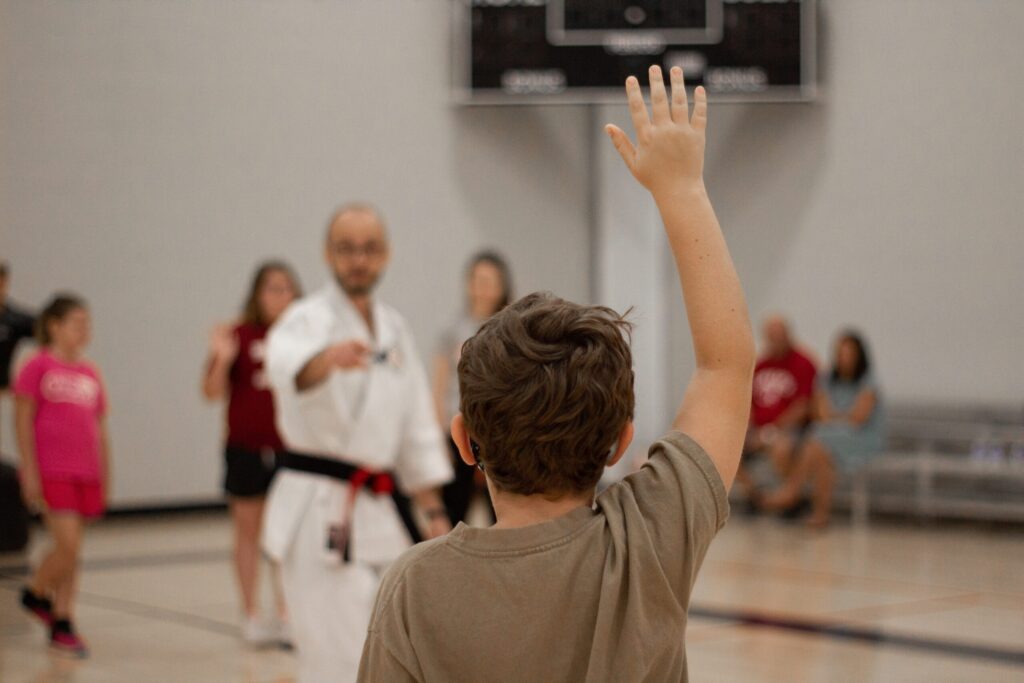How to Help your Drill Partner and not Slow their Learning

In many of our classes at Duello we have a section where students of all levels drill with one another, one-on-one. It’s a great opportunity for inexperienced students to gain from the physical knowledge of experienced partners, for members of the school to meet and connect with one another, and for technique to be tested against the myriad of slight variations one can experience between practitioners.
During this time it is not uncommon for the experienced practitioner to offer something to their junior partner. A tip about their foot position, blade alignment, or overall mechanics. In general this seems helpful and encouraging, however, I think it’s important to approach these situations with some awareness.
Here are three things to keep in mind:
Does this person want my help?
Each individual’s learning process tends to be slightly different. Some people like to get lots of help up front, understand all the factors and variables, and then try to process them into a whole. Some people like to get moving with only basic information and then receive lots of coaching. Others like to spend time on their own, beating against the problem for a while and using their own solving skills before soliciting outside help.
If you give help when someone is not ready or willing to receive it, at best your energy is wasted, at worst it can lead to some emotional consternation and slow the learning process. I recommend checking in with your partner. First find out what type of help they want or if they want help at all. “Is there any way I can help you during our time today?” Not only does this best apply your energy, it reaffirms your partner’s empowered role in their own learning.
Is this person able to receive my help?
If you are an experienced martial artist, you may not remember what it is like to be new. A technique that in your mind is a unified whole, like a lunge or cut, is being managed as more than a dozen moving parts in the mind of the beginner. When you tell them to adjust their foot, you’re putting another part into their brain to be managed, and this can easily overwhelm the learning process.
Give beginners some time to bring unity to what they’re doing. There is lots of time for refinement. The best help you can often give is to simply reassure them that they’re on the right path and that they shouldn’t worry too much about small details just yet. Effort and work will bring rewards.
If your partner is past this early, awkward stage, consider helping them contextually instead of verbally. Offer some meaningful testing within the exercise (without breaking your exercise role of course). Good drills have the capacity to give constant feedback. As a partner you should be employing the mechanic of the drill to give consistent feedback; when the technique is right, your partner succeeds, when the technique is incorrect, it fails.
Is help the best thing right now?
Often the best thing we can do for someone new is to graciously affirm what they’re doing right, rather than giving them too much information about what’s wrong. “Thanks, and well done.” See if you can catch your partner succeeding and put your energy there. You’ll be amazed at how far a little positive energy can go.
Devon




Responses